Scores can be used to give a feeling of accomplishment, show progression, give a little dopamine boost as they are displayed, bring out a little competitive streak in someone, make games feel like they have a purpose and many other things. So I want to talk about how to get the most out of a score system.
If you are putting a scoring system in your game you need to be thinking what you are trying to achieve, what emotions/sensations are you hoping the player will have? For example a rhythm game may benefit from seeing lots of big numbers popping up in an exciting way, but if you have a strategy game you may want an easy to remember rank like B+ that feels more professional.

Giving someone a D- rank or a Bronze might make them feel inferior, however just giving a number can help adjust this. If they get a score of 499 they don’t know if that was out of 500 or 1,000,000. We can use this to intentionally make them feel good about themselves. You can do the big fanfare with all the particles and happy sounds and say “Yay! You got 1000 points, here is your pat on the back” without telling the player that is actually an exceptionally low score.
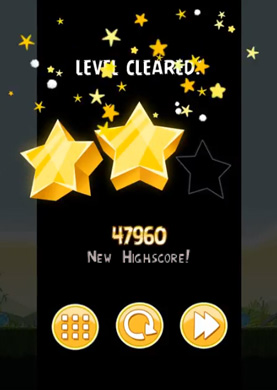
How do you make people know they are progressing? If someone went from a C rank last time to a different coloured B they are more likely to notice, but going from 5600 to 6100 is unlikely to be noticed. This is how we can use scores to make people feel like they are progressing through the game or performing better.

In many games like Super Smash Bros Ultimate you are forced to make a very interesting decision when it comes to scores. You get a bonus to your score the more difficult you make the game however if your player gets killed you lose score. Its puts the player into a clever balancing act where they want to make it a tricky as possible where they can get through without dying. Also reducing a score is a great way to make the player feel like they are penalised when losing without removing anything from them.
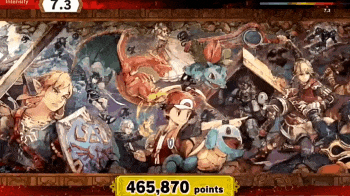
Giving rewards for the right kind of gameplay, if you want people to explore levels don’t give them a score based on time. If you have a fighting game to encourage people getting long combos you might give a multiplier for consecutively hitting enemies, this score system reinforces a fun gameplay and becomes part of the game.
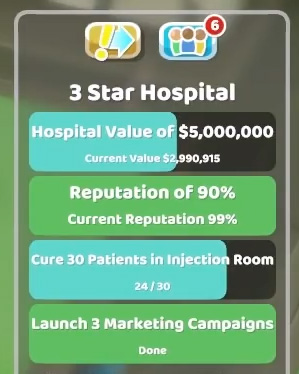
I wanted to give a mention to Two Point Hospital who have a 3 star rating for each level. The requirements for each star are always visible to give players something to work towards and there is never a time requirement so you can just relax and work towards the next star (This might not be considered a scoring system because they are required to unlock the next level, however maybe that is the best thing for a ranking system to do?)
You want to try and keep players scores together, if two players are competing you don’t want to give one person a score of 90 and the other a score of 10 because that is really unsatisfactory. Really you want one person to get a score of 90 and the other a score of 85 so it looks like it was a really close game, even if there was a huge skill discrepancy.

Here you can see the scores of people on the blue team are much closer together than the red players. It doesn’t look good to have one person on your team get a score of 13 and another person a score of 577. I would fix this by starting each player with 400 points because this best player got 977 points and the worst 413 and this gives the illusion that their skills are much closer.
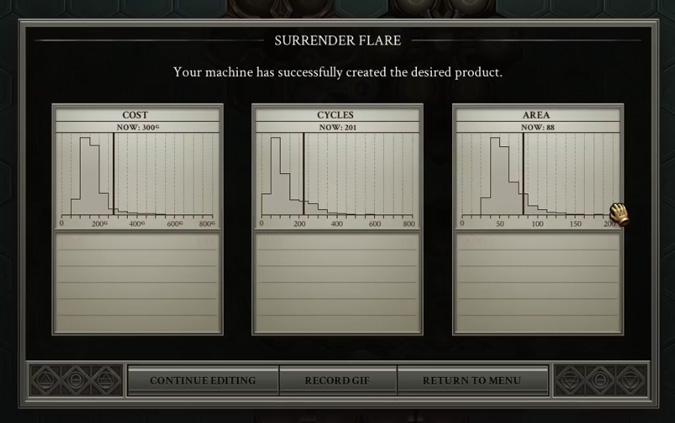
Permanent bonuses to scores; There are games like Hitman that record when you complete an objective and will give you +1% score bonus when you play that level in the future. I’m not sure what I think about this, it’s definitely not for every game. It does add a huge amount of replayability but I don’t like the idea that a player who does well gets a lower score than someone that sucked but just happened to grind out all the objectives.
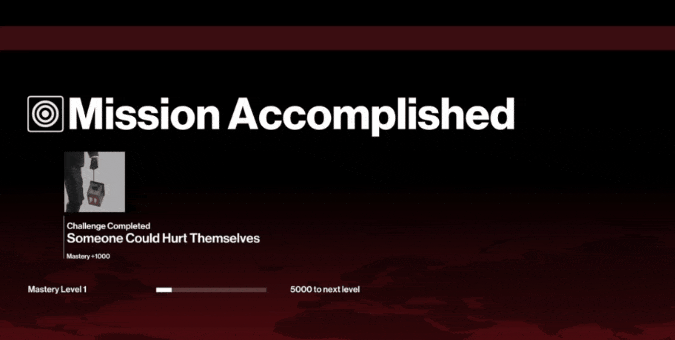
S Rank, SS, SS+, Special Rank. Sometimes in games you see the S rank, this can be to show the highest rank but more often games that want to be seen to be aimed at a Japanese audience or that want to have a VERY high skill ceiling will use S, SS, SSS. It is a clever way to add more ranks into the game without diluting the lower ranks. If you use the ranks A,B,C,D it’s hard to distinguish people that are in the top 10%, top 1% and top 0.1%. However adding in many of these S ranks allows you to hand out these seemingly good grades like B to worse players and reserve the S ranks to only the very top elite players.
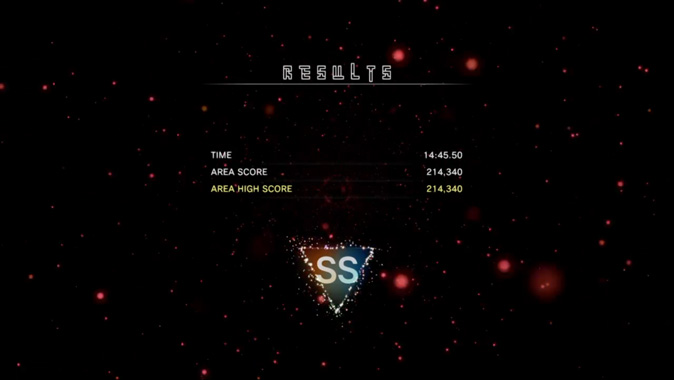
It seems too obvious to say but if you give players 10 points for hitting an enemy someone with a fast attack speed but low damage will get more points for killing an enemy.
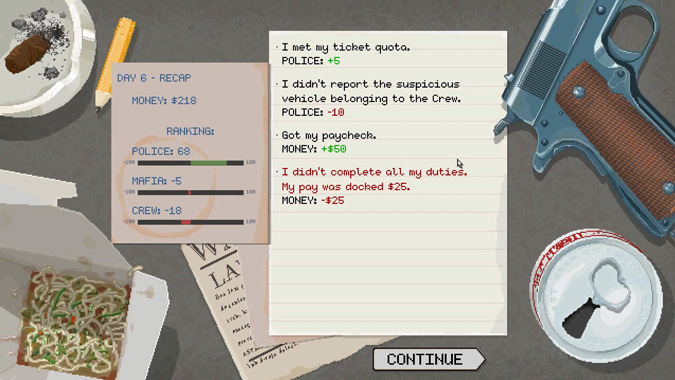
Showing how a score was derived gives some positives and negatives, in one way it allows a player to break down how they played so they know how to improve, but also this might encourage them to play in a tedious way. Players might also try and game the scoring system, I don’t mind this so much because everyone gets their satisfaction in different ways, but I worry there would be situations where players would get into an endless loop of farming points and not progressing towards the end of the game.

Just because you don’t show the formula doesn’t mean players won’t still work out how its calculated, and you might find that slowly revealing scores at the end of a level with bonuses, and enemy counts slamming down onto the screen makes people happy.
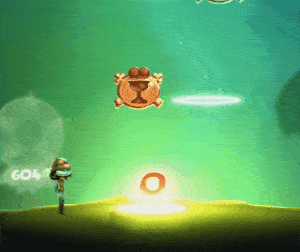
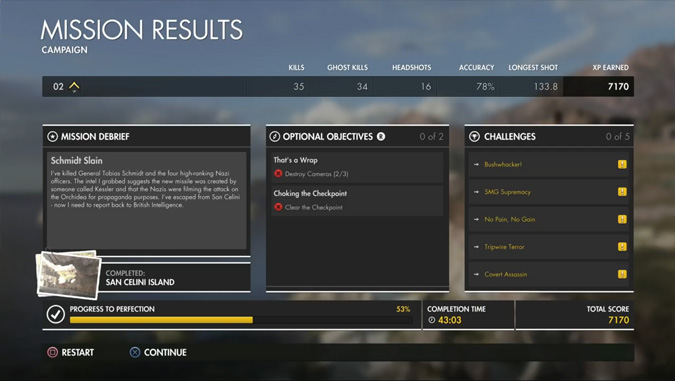
In Sniper Elite 4 you see a breakdown of how the score was calculated and this directly becomes the amount of experience you gain.

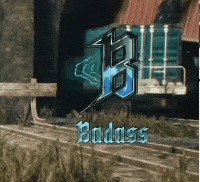
Devil May Cry 5 - gives you a score for each battle, that way players are rewarded more frequently because each mission is very long. Players are incentivised to chain together attacks in rapid succession without getting hit. This makes battels feel much more intense and means if you make a mistake in a single fight it doesn’t really impact your final score.
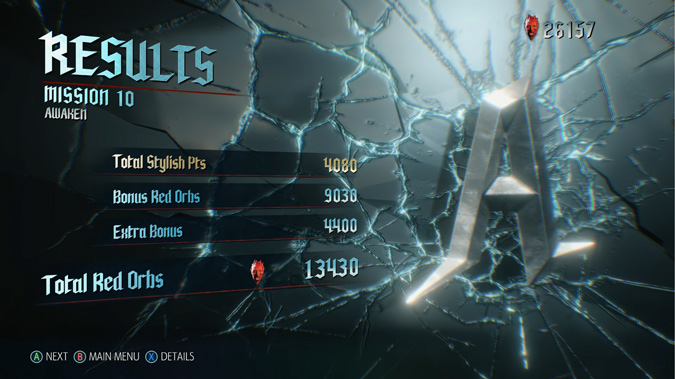
Bayonetta 2 – Is similar in the way is does a score for each battle, however it is far more transparent about how it gives you point
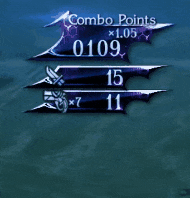
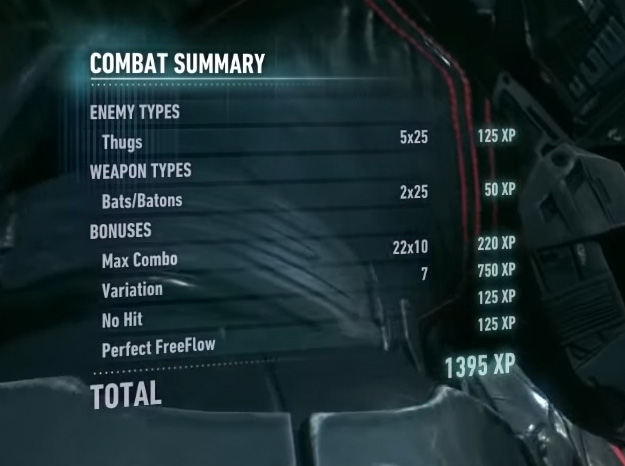
In Batman Arkham Knight you fill up a score bar as you fight, once filled enough it gives you access to more powerful attacks, it is also directly converted into experience for the player.
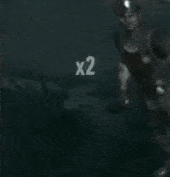
Score as a teaching aid, when players are new to a game you can use scores as a way to reinforce when a player is doing the correct thing. Its a nice little subconscious clarification that if the player is getting points they must be doing the right thing.

Here you can see me getting points in Overwatch to show an enemy has been trapped and that I am currently standing on the objective. The “Hotness Meter” might not look like a score system but I would argue it absolutely is, but with the special effect of counting down if the player isn’t doing something cool.

Here in Rainbow Six Siege you can see it rewarding points as a way of encouraging people to build up their team’s defences.
You often see games reward a nominal amount of points/exp for finding an area the player has never been to before. This encourages exploring and also improves navigational skills around the map.
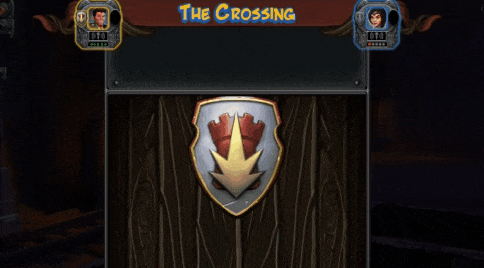
Here in Orcs Must Die 2 you get a ranking in skulls and those skulls are a currency ingame used to buy upgrades
How does adding online scores impact the game? Well it does add a whole bunch of content and for some people a reason to play, but you have to watch out. Most players will get what they consider a bad position, it would be really rare for someone to get into the top 100, anything after that is already going to look like a failure. One neat solution I have for this is just by having a 24hour scoreboard. The web games I make tend to get in the region of 1000 players a day. This means getting into the top 100 isn’t such a hard stretch, I even allow players to filter by country, this means the users are only playing against a very small pool of people so I can basically always say “You are amazing! you are in the top 20 players (Whispered: in the last 24 hours against people near you and of people of your skill who happen to be playing that level, in your language)“ One small side note if you want to do this, use a rolling 24 hours rather than resetting every day at midnight because if someone plays at 00:01 your game will look inactive.
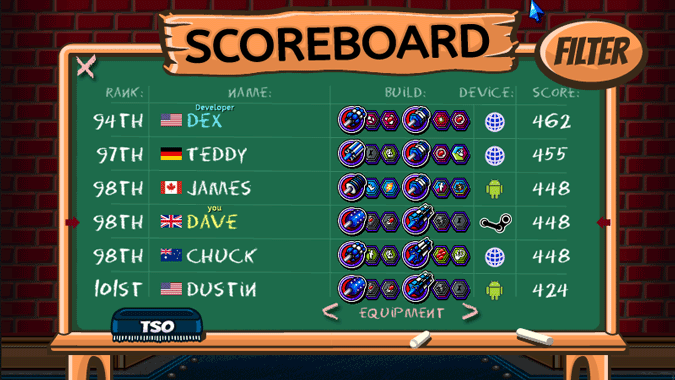
As a developer it is very easy to remove points from the player because they didn't achieve a task, but as a player this isn't very satisfying. It might be something you didn't want to do or you didn't know you should do. It's far better to give a bonus: "Here is 700 points for finding 7 out of 30 locations" feels like you did a good thing "We have removed 2300 points for the locations you didn't find" makes me a sad panda.
Developers need to be analysing the scores their players are getting, it’s a really good indication of how people are playing the game. If I can see some players are getting absurdly high scores it is likely there is an unintentional exploit left in the game, likewise if there are a group of people getting a lower than average score they might have missed something the developers thought was explained.

Here is a small analysis of a web based game I made with an online scoreboard; It has a fairly shallow drop of curve considering it’s so hard to keep a players attention when they haven’t paid for a game and it’s so easy to leave. Also I should point out the highest score was 2535 but I chopped off the graph because keeping in the long diminishing tail made it hard to see the bulk of players.
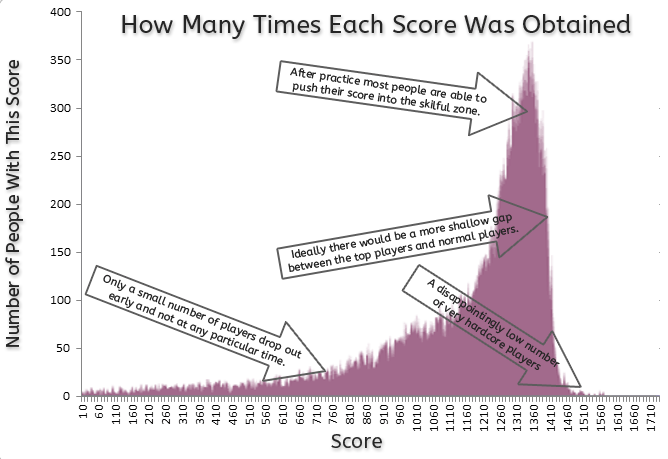
This speed tapping game encouraged players to repetitively play the game to beat their last score, it looks like I was successful in getting people to improve their score but I didn’t have enough skill range to allow people to really flex and push their ability.
Did I take my own advice when devising these scores?
The last thing I wanted to say about online scores is you will always have people that try and attack your leader board, It’s impossible to make them 100% secure however you need to put enough security in to discourage people and make them move onto a softer target. One of the many things I do is having scores that are impossible to achieve, the easiest way to do this is with a check-digit at the end or multiplying the score by a number. I still put these fake scores into the database as it allows me to investigate further.
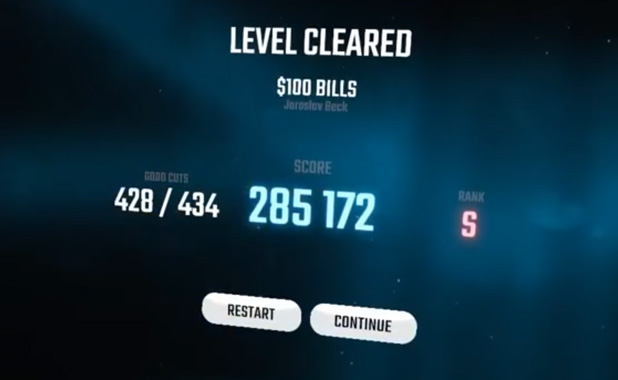

Tony Hawk’s score system has never changed; Players get points for performing a trick but this amount changes if that trick is used too much, the value is then multiplied by the amount of tricks that have been chained together. So the player is rewarded for playing very risky however if the player cannot land this trick they receive zero points for the whole chain. The formula is perfect because it's so quick and easy to retry and add just one more extra trick in until they can land it.
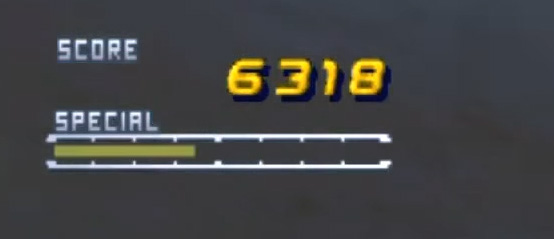
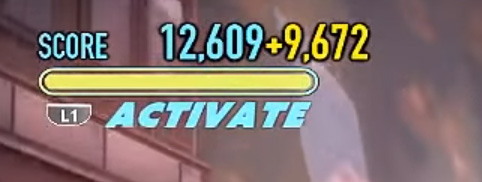
Adjusting gameplay based on players score... There are better ways to do this, but dynamically changing the difficulty of a game on the fly is really exciting and should be the topic of its own article.
Scores in boardgames, this is a little off topic but it is worth mentioning a category of boardgames called Eurogames, these normally use scores to find out who is victorious. Players don’t normally “fight” against each other but instead try to play the board as best they can and the winner is the player with the highest score. There is some satisfaction at the end one the game with the anticipation of finding out who the winner is, however it is my experience that more often than not what should be the climax of the game turns into a maths lesson and the excitement has already diminished when scores are announced.
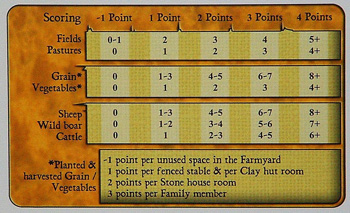
That does lead me nicely onto hidden scores; because often scores don’t need to be displayed all the time, infact hiding it for a period and then revealing it to them gives some interesting results and stops the player just becoming saturated and blind to the score. For example It’s easy to forget that all Mario platforming games display a score that has now basically become zoned out to every player. If they had a purpose or changed colour as it got higher or bounced when the player got to a milestone players would pay more attention to them.
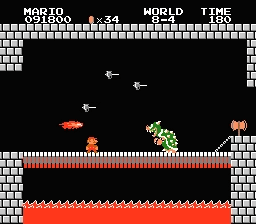
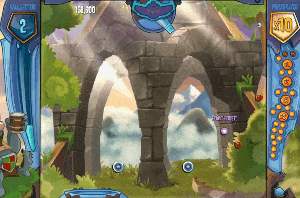
Again it depends on the game; if your game benefits from constantly throwing out big numbers to make the player feel successful that is great, otherwise the lovely reveal at the end might be the best way to stimulate the player.
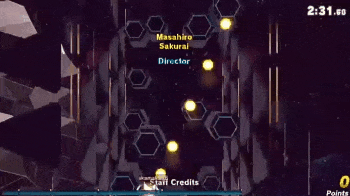
I always liked the way you can interact with the credits screen on Super Smash Bros. It’s notoriously hard to get players to watch the credits but just by putting a score at the bottom it instantly gamifies it and makes people want to interact with it.
In the game Undercrewed that I am currently working on the score is hidden from the player, then about 3-4 times a level the score is revealed, this makes the player notice it and also allows them to think “Oh I’m doing better than I was last time I was at this point in the level”.
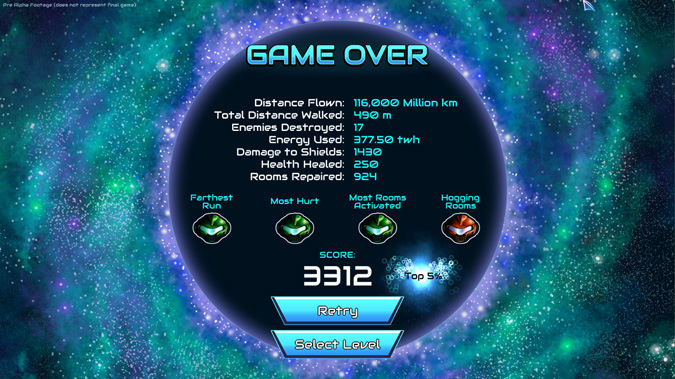
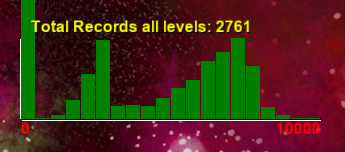
For the beta of Undercrewed I found some interesting results from the submitted scores. First please ignore the left most column, I’m not sure why it thinks enough people got 0 points to push it off the scale (I’m not even sure it's possible to get zero points). However even from the small sample size the rest of the results are clearly split into two groups.
Undercrewed can be played between 1 and 4 players, and while I don’t know how many people were onboard for each score I’m pretty sure the left peak is players playing by themselves (either with bots or without bots). The right peak are groups of people playing online and maybe taking the game more seriously.
From this data I can see there are very clearly two distinct groups of people playing Undercrewed.
Statistics, sometimes showing raw statistics is better than a score, a player might find it more interesting to know they spend 5min in a puzzle game, had an accuracy of 80%, and completed 3 objectives. Rather than you just convicting that into a score.
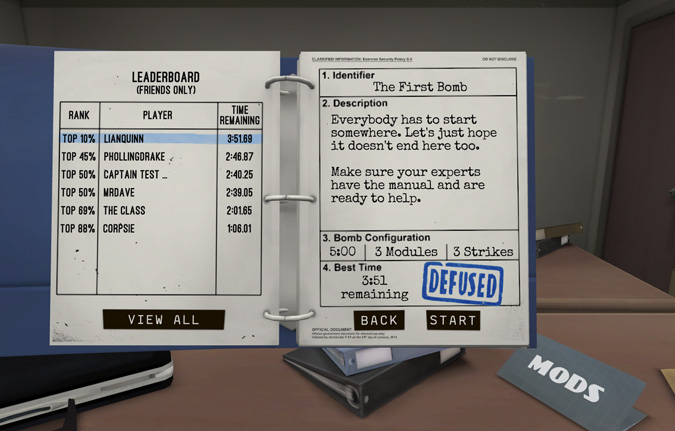
Hidden objectives, again we are walking into the realms of board gaming and victory points might not technically be a scoring system. However I still see this as under the umbrella of giving someone a number at the end to say how well they did. I do enjoy when games give players an objective that only they know which is worth points if they complete it, this adds a level of secrecy and instantly makes people monitor what their opponents are doing to guess what their plan is.
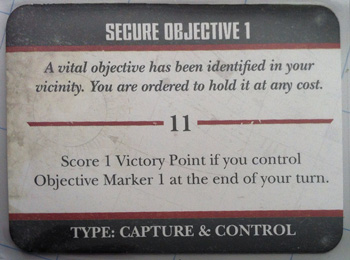
I would love to go into how the colour or font of the score changes how it is perceived, but I think this article is already getting too long.

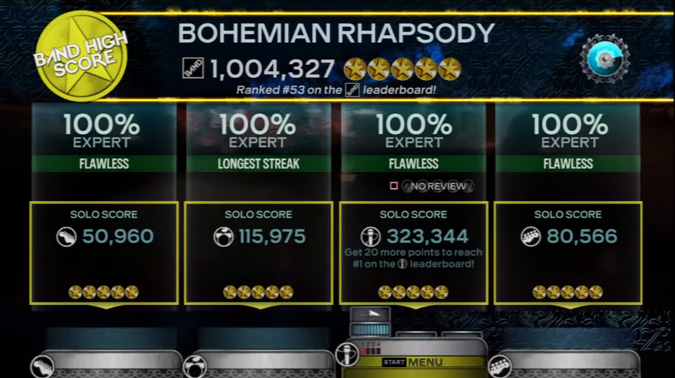
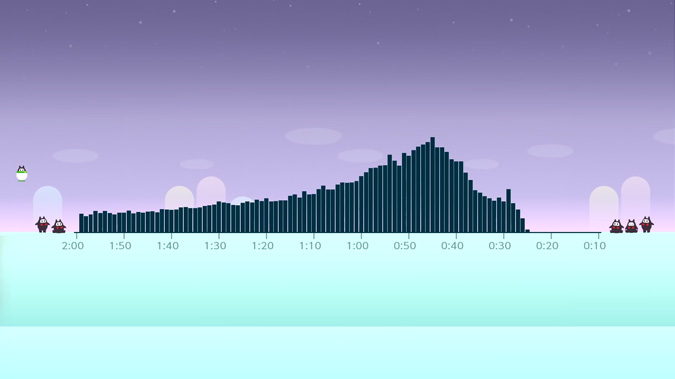

 44 things I want you to know about my Kickstarter campaign
44 things I want you to know about my Kickstarter campaign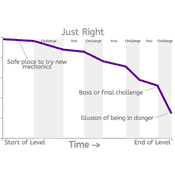 How to Build Levels at the Perfect Difficulty
How to Build Levels at the Perfect Difficulty